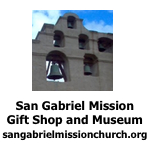City of Monterey Park News Update
Monterey Park Fire Department: Be Prepared to Act Before, During and After an Earthquake or Disaster
Monterey Park, Calif. – July 11, 2019 – With the recent earthquakes that have hit Southern California, it is important to remember to maintain preparedness all year long. The Monterey Park Fire Department would like to remind all citizens that earthquakes can strike at anywhere and at any time. The fire department and the City of Monterey Park prepare for such events all year long by conducting exercises to ensure that city services, if interrupted, will be maintained and up and running as soon as possible. We ask that you do the same at your home or business. We developed a Disaster Preparedness Guide that is available on https://www.montereypark.ca.gov/415/Disaster-Preparedness.
Please read through the guide and take a survey of your home or business to make sure you are prepared for any type of disaster that may strike our region. Here are some tips to help with your preparedness:
Before an Earthquake
Know your risk. Research the area and find out if you live near an active fault line. Check whether the ground around you is more susceptible to the effects of an earthquake. You should also be aware of seismic hazards. These hazards are secondary dangers that could be triggered by an earthquake. Seismic hazards include the following:
- Steep hills that could turn into landslides.
- Ocean fronts that could bring in tsunami waves.
- Poorly constructed buildings that could result in damage and injuries.
Retrofit and reinforce your house. If you’re in a high-risk area, take steps to reinforce your house. Bolt your house to the foundation and reinforce support beams as needed. Secure furniture such as bookshelves and cabinets to the walls. This will decrease the risk of furniture moving or falling and injuring someone.
Create a disaster plan. Earthquake preparedness can help reduce anxiety and minimize injury. Teach your family members the cover strategy discussed further down in this article. Also, designate a safe place to meet outside of the house after the shaking stops.
Put together an emergency kit. Your kit should include:
- Non-perishable food.
- Water.
- First aid supplies.
- Flashlights.
- Camping supplies (battery-powered lantern, etc.).
- Extra batteries.
- Blankets.
- Any personal items you may need (medications, toiletries, clothing).
Plan a week’s worth of supplies for each person. You’ll need at least four gallons of drinking water per person for a week. Remember to pack supplies for your pets as well.
During an Earthquake
Stay away from hazards. One of the biggest hazards during an earthquake is falling debris and furniture. Stay away from windows and furniture that could fall over. Avoid places that have objects stored overhead. Kitchens and garages are dangerous because of the items stored in overhead cabinets and shelves.
Take cover in a safe place. Take these three steps when you feel the ground shake.
1. Drop. Get down on your hands and knees. This can help keep you from being knocked over or losing your balance. It can also help protect your vital organs.
2. Cover. Place your hand on the back of your head and neck. Crawl to shelter such as a table or desk. If there is no shelter nearby, crawl against a wall, but avoid windows.
3. Hold on. If you’re under shelter, hold on to it with one hand. Keep your other hand on the back of your head and neck. If you do not have shelter, stay on your knees and elbows and cover the back of your head and neck with both hands.
Stay inside. Do not go outside until after the shaking stops. Stay under cover, or in place with your hands over your head and neck.
After an Earthquake
Be prepared for aftershocks. Earthquakes are often followed by aftershocks – additional quakes that follow the main event. These can last for days or even weeks after a major earthquake.
- Check your gas lines. Make sure there are no leaks. If you smell gas leaking, turn it off if possible, and call the gas company. Do not use an open flame in your house until you are sure it is safe. Wait for the gas company to turn the gas back on.
- Wear shoes. You may have broken glass or spilled chemicals on the floor of your house as a result of the earthquake. Don’t walk around barefoot until you’re sure the floor is clean and safe.
- Document the damage. If your insurance policy covers earthquake damage, be sure to take photos or video of the damage to use during your insurance claim process.
Without warning, an earthquake can shake an entire state. It may seem impossible to prepare for something so unpredictable. However, by taking some minor precautionary steps and knowing how to respond, you may have a better chance of keeping you and your family safe through an earthquake.
If you have any questions, please feel free to contact Captain Steve Gregg or Captain Justin Birrell at 626-307- 1423 or visit www.MontereyPark.ca.gov and search for “disaster preparedness.”
City of Monterey Park news is available on the web, by email subscription and via RSS feed at



